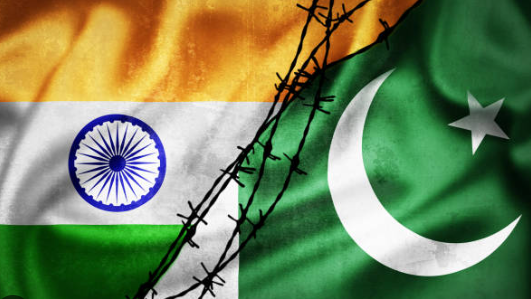The Indian and the Pakistani governments have both decided to send major diplomatic outreach to regions abroad due to India’s resolve to tackle terrorism and Pakistan’s attempts to expose Indian propaganda on the international level.
In India, the Centre has announced a list of 50 Members of Parliament who will be part of seven all-party delegations to key regions across the globe, tasked with “taking India’s voice to the world.” The delegations are a mix of ruling party MPs, allies, independents, and members from the Opposition, and will travel to over 30 countries spanning Asia, Europe, Africa, and the America, said the Press Trust of India.
Prominent Opposition leaders chosen to lead delegations include Congress’s Member of Parliament Dr Shashi Tharoor, who will head the team visiting the United States, Brazil, Colombia, Panama, and Guyana, Supriya Sule of the NCP (Sharad Pawar faction), who will lead the group visiting Egypt, Qatar, Ethiopia, and South Africa.
From the ruling party, BJP MPs Baijayant Panda, Ravi Shankar Prasad, and Shrikant Shinde are leading delegations to Gulf countries, Europe, and Africa, respectively.
The delegations will be a mix of ruling party MPs, allies, independents, and members from the Opposition.
On the Pakistani front, Pakistan People’s Party (PPP) Chairman Bilawal Bhutto-Zardari was tasked by Pakistan’s Prime Minister Shehbaz Sharif to lead a high-level delegation to key global capitals to present Pakistan’s stance and push for peace. Bhutto-Zardari, whose party is a key ally of Pakistan Muslim League-Nawaz (PML-N) in the Centre, accepted the responsibility, confirming his promise to represent the country internationally in testing times.
“I was contacted earlier today by Prime Minister [Shehbaz Sharif], who requested that I lead a delegation to present Pakistan’s case for peace on the international stage. I am honoured to accept this responsibility and remain committed to serving Pakistan in these challenging times,” he wrote on X.
The delegation will include Federal Ministers Dr Musadik Malik, Khurram Dastgir Khan, Sherry Rehman, and Minister of State Hina Rabbani Khar, according to the official statement.
The statement further noted that Senator Faisal Sabzwari, former foreign secretary Tehmina Janjua, and former ambassador to the US and EU Jalil Abbas Jilani will also be part of the delegation. The team is scheduled to visit key capitals including London, Washington, Paris, and Brussels.
These developments follow the terrorist attack in Pahalgam, in Indian-administered Kashmir, which killed 26 tourists, India accused Pakistan for the incident. Police there claimed militants included at least two Pakistan nationals. Pakistan has asked India for evidence of this, and has called for an independent inquiry into who was behind the attack.
Meanwhile, India’s Operation Sindoor and Pakistan’s retaliatory Operation Bunyan-Um-Marsoos, shelling from both sides have claimed the lives of many civilians and injured many more. After at least 87 hours, the war ended on May 10 with a ceasefire agreement brokered by the United States.
Both sides administer the Himalayan region in part but claim it in full. Both governments deny targeting civilians, but in an interview with BBC, families affected by the conflict have spoken of their struggles.
Sanam, who lost her mother, said, “I appeal to both governments – if you’re heading into war, at least secure your civilians. Prepare… Those who sit in comfort and demand war – they should be sent to the borders. Let them witness what it really means. Let them lose someone before their eyes.”
Since a ceasefire agreement between India and Pakistan in 2021 there had been relative peace in the region, locals told the BBC. For the first time in years, they had been able to live normal lives, they said, and now this sense of security was destroyed.
On the international stage, there had been consternation that the tensions would not be de-escalated by the US, despite its diplomatic overtures during India and Pakistan’s previous Kashmir clashes. US Vice President JD Vance said a potential war would be “none of our business”.
A witness to the Pahalgam attack’s aftermath, Rayees Ahmad Bhat, who used to lead pony treks to the beauty spot where the shootings took place, said his industry was now in ruins. “The attackers may have killed tourists that day, but we – the people of Pahalgam – are dying every day since. They’ve stained the name of this peaceful town… Pahalgam is terrorised, and its people broken,” he said.
The four-day conflict has once again shown how fragile peace can be between the two nations.


